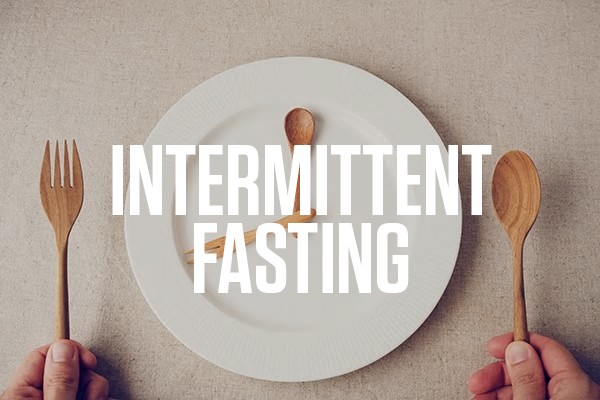Intermittent fasting: What's it all about?

What does it involve?
The concept of intermittent fasting (IF) is to reduce your overall daily calorie consumption through periods of fasting to encourage fat loss and improve health.
For a regular ‘fast’, you refrain from eating for around 14-16 hours at a time twice a week, it may be more or less hours/days depending on your personal preferences and goals.
What is interesting about IF is that it’s overall concept directly opposes the typical bodybuilder diet of eating every few hours to stay anabolic.
So perhaps continuously feeding the muscles is not as important as first thought? In fact, maybe having a break from food and your regular routine is beneficial?
Well, many bodybuilders and athletes are integrating intermittent fasting into their diets to give their bodies a break and to promote fat loss.
It does make sense that by lowering your caloric intake by having longer periods without food, the body can burn fat more easily as it searches for energy… but how exactly does fasting help?

So how does it actually work?
IF has been found to be an effective weight loss tool, with research supporting its ability to increase fat oxidation, reduce body weight, and accelerate fat loss. Sources say this is because increased periods without eating can boost fat loss as the body is able to use stored fat as fuel.
To get even more science-y, fasting accelerates something called autophagy or “cellular cleansing”.
Autophagy is a biological process in which your body is cleansed of old cells in the search for fuel. In fact, this process recycles old cells and converts them to be used elsewhere for energy, woo hoo!
It’s basically a natural detox process that wakes up your body and gets it to work harder to give you the energy you require.
Autophagy is also key to anti-ageing.
What do I eat then?
IF is less of a ‘diet’ and more of a dieting pattern. Depending on the plan you follow or your personal preferences, you may only choose to fast a few days during the week rather than every day.
Usually bodybuilders and athletes who already follow a meal plan just schedule a fast or two into their week and continue with their normal diet for the rest of the time.
However, it’s probably going to be more beneficial if you eat fairly clean and healthy rather than digging into takeaway after your fast!
It’s also recommended that while you may want to, don’t go crazy after the fast. Try and slip back into a normal routine rather than trying to catch up on missed meals.

Pros
Research has revealed that IF can have various benefits such as decreases in blood pressure and cholesterol and an improvement in glucose uptake. Plus, it’s shown to be useful for lowering fat mass and cholesterol, as well as the risk of coronary heart disease.
Fasting is a good way to cleanse your body due to the processes the body undergoes during a fast (no need to get involved in those detox diets!).
Also, if you’re concerned that restricting calories will cause you to blow out and have a huge binge session, you needn’t be. Studies have shown that IF dieters have been able to decrease emotional, binge eating habits and improve restrictive eating behaviours.
Cons
You do have to be able to not eat for a long period of time! Sleep does count towards your ‘fast’ but if you’re trying to hit 16 hours, you still need to fast for another 8 hours.
The point of IF is for your body to be hungry and searching for fuel, so your hunger is likely to increase. So, if you really can’t stand being hungry, it may not be for you.
It’s also possible you’ll feel a little sluggish and lethargic during the fast due to the lack of food, of course.
Is IF for me?
If you prefer to graze throughout the day or you feel better having three set mealtimes, then this may not be for you.
However, as it’s usually just a twice a week fast it may be something to consider if you’re in a rut and need a change. The research certainly seems to point towards some benefits.
Possibly consult with your health practitioner before beginning fasting, especially if you have any medical conditions.
Remember the best diet is the one you can stick to and feel good on!

Ellie’s an absolute copywriting boss from Hobart, Tasmania!
She's an amateur powerlifter who's crushed it in several competitions, and she's got all the keto knowledge to keep her fuelled up for her workouts.
One thing you'll always find in Ellie's pantry is a jar of peanut butter - she's obsessed.
More about Ellie HearnReferences:
- Alirezaei, M., Kemball, C., Flynn, C., Wood, M., Whitton, J. and Kiosses, W., 2010. Short-term fasting induces profound neuronal autophagy. Autophagy, [online] 6(6), pp.702-710. Available at: Short-term fasting induces profound neuronal autophagy.
- Collier, R., 2013. Intermittent fasting: the science of going without. Canadian Medical Association Journal, [online] 185(9), pp.E363-E364. Available at: Intermittent fasting: the science of going without.
- Cuervo, A., Bergamini, E., Brunk, U., Dröge, W., Ffrench, M. and Terman, A., 2005. Autophagy and Aging: The Importance of Maintaining "Clean" Cells. Autophagy, [online] 1(3), pp.131-140. Available at: Autophagy and Aging: The Importance of Maintaining "Clean" Cell.s
- Heilbronn, L., Smith, S., Martin, C., Anton, S. and Ravussin, E., 2005. Alternate-day fasting in nonobese subjects: effects on body weight, body composition, and energy metabolism. The American Journal of Clinical Nutrition, [online] 81(1), pp.69-73. Available at: Alternate-day fasting in nonobese subjects: effects on body weight, body composition, and energy metabolism.
- Klempel, M., Kroeger, C., Bhutani, S., Trepanowski, J. and Varady, K., 2012. Intermittent fasting combined with calorie restriction is effective for weight loss and cardio-protection in obese women. Nutrition Journal, [online] 11(1). Available at: Intermittent fasting combined with calorie restriction is effective for weight loss and cardio-protection in obese women.
- Wegman, M., Guo, M., Bennion, D., Shankar, M., Chrzanowski, S., Goldberg, L., Xu, J., Williams, T., Lu, X., Hsu, S., Anton, S., Leeuwenburgh, C. and Brantly, M., 2015. Practicality of Intermittent Fasting in Humans and its Effect on Oxidative Stress and Genes Related to Aging and Metabolism. Rejuvenation Research, [online] 18(2), pp.162-172. Available at: Practicality of Intermittent Fasting in Humans and its Effect on Oxidative Stress and Genes Related to Aging and Metabolism.
Related Blogs

How to Have a High-Calorie Weekend Meal and Still Lose Weight
Posted by Bulk Nutrients
Estimated reading time: 6 minutes

Does Intermittent Fasting Pose Any Risk of Muscle Loss?
Posted by Bulk Nutrients
Estimated reading time: 6 minutes

Detoxes Are They Beneficial, or a Waste of Time (And Money)
Posted by Jackson Peos
Estimated reading time: 5 minutes













































